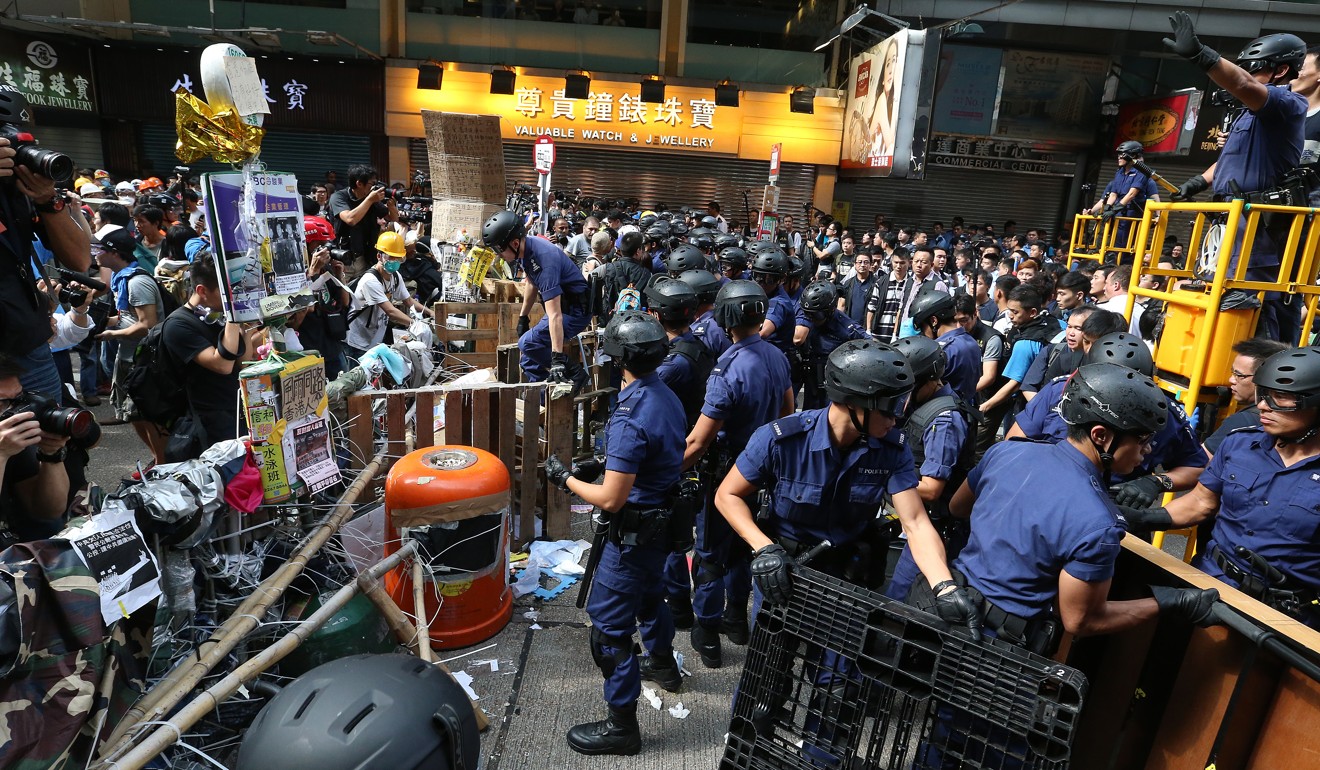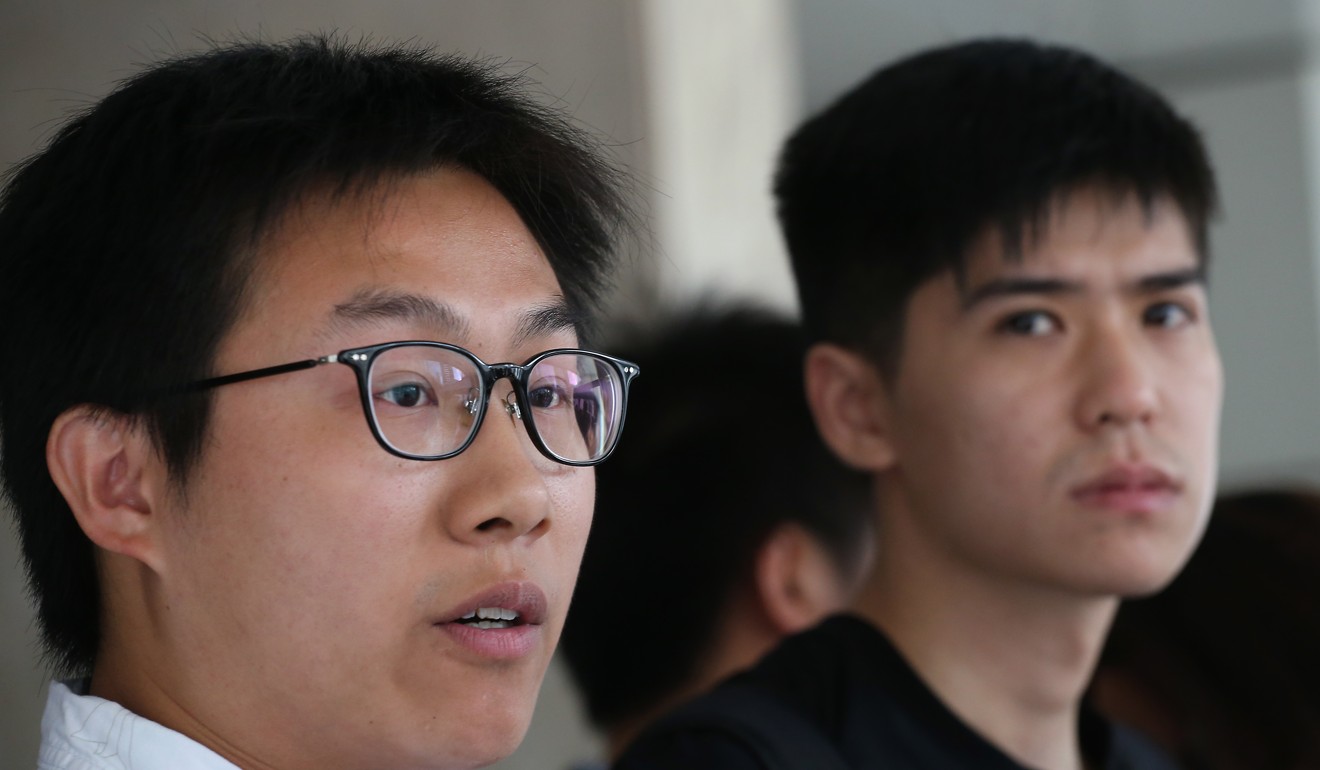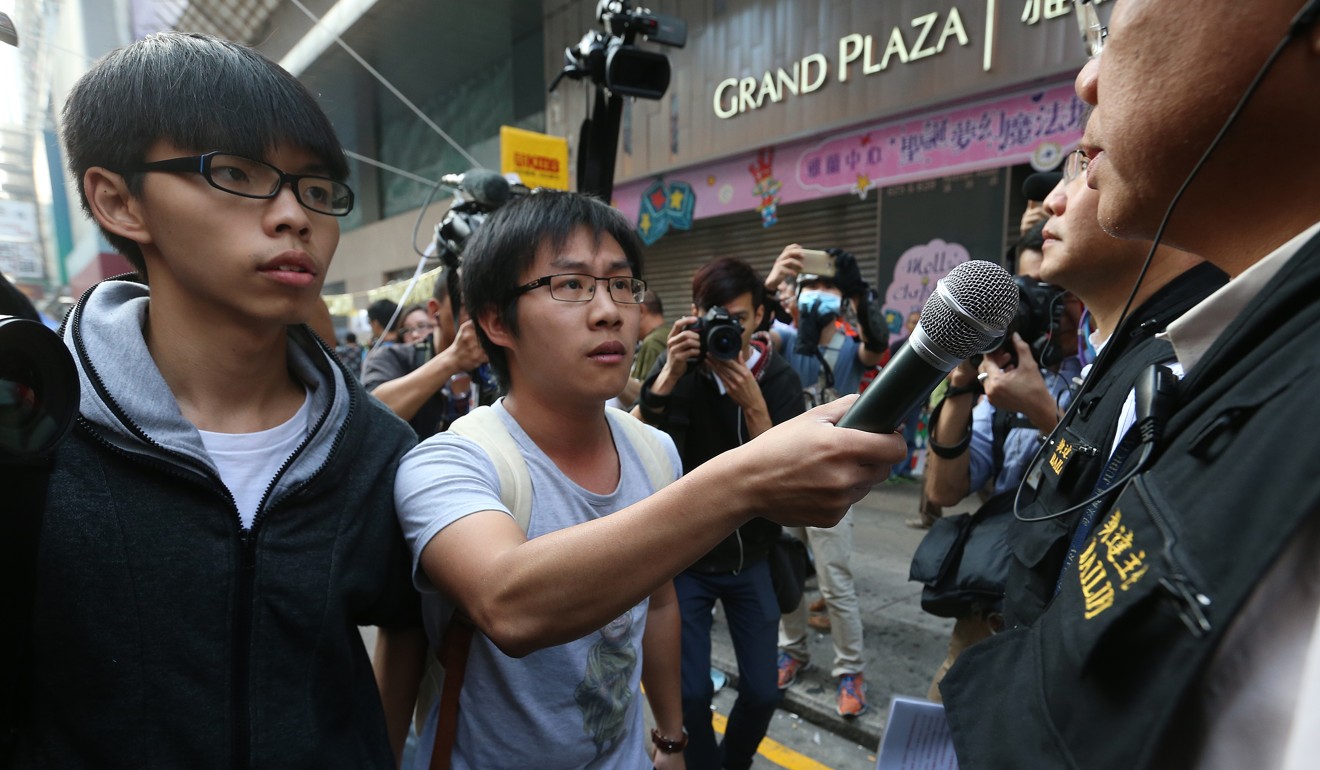
Occupy protesters warned at least three times to leave Mong Kok before 2014 clearance, court hears
Lawyer claims nine protesters in contempt trial had reason to vacate demonstration stronghold
In their opening address, lawyers for the city’s justice minister also said the order was widely reported and advertised in local media, arguing that protesters would have been made aware of it.

“The judgment was written in clear and easily understandable terms,” senior counsel Victor Dawes, for the government, said. He referred to the court document that conveyed the instruction.
Dawes added that the consequence – namely, protesters being held in contempt if they obstructed bailiff officers carrying out the clearance – had been repeatedly mentioned by the court.
The lawyer laid out his allegations against nine protesters: vice-chairman of League of Social Democrats Raphael Wong Ho-ming, Chan Po-ying, Chiu Chi-sum, Chu Pui-yan, Fung Kai-hei, Hung Cheuk-lun, Kwan Siu-wang, Kwok Yeung-yuk, and Mak Ying-sheung.

The nine belong to a group of 20 arrested on November 26, 2014, when bailiff officers were deployed to Nathan Road in Mong Kok to clear the protest stronghold.
The officers were acting on an injunction order sought by the city’s taxi drivers, who claimed the occupation disrupted their livelihood. Secretary for Justice Rimsky Yuen Kwok-keung later took up what was originally a private legal dispute and instigated contempt of court proceedings against the 20.
In court on Friday, Dawes said because the two taxi groups – the Hong Kong Taxi Association and the Taxi Drivers and Operators Association – took legal action on October 20, 2014, the media reported on the matter in great detail.
He stated that bailiff officers and representatives of the taxi driver groups arrived at the scene on November 26, 2014, the day of the clearance, to make the first announcement as early as 8:40am.
He added that another announcement was made about an hour later, after which chaos soon ensued.
“Obviously if the bailiff officers were able to clear the obstruction, there would have been no need to call the police,” he said.

But the situation escalated, Dawes continued, so police were called. An announcement was made on site about police involvement, with warnings that minimal force would be used to clear the scene and that no further notices would be made prior to any arrests.
Police arrested six people as they advanced along Nathan Road until they reached Shandong Street. A third announcement was made at around 11am, after which three others were arrested.
Dawes said the witnesses he planned to call would testify where they found the protesters at the scene and how they had been arrested.
The trial continues before Mr Justice Andrew Chan Hing-wai.

